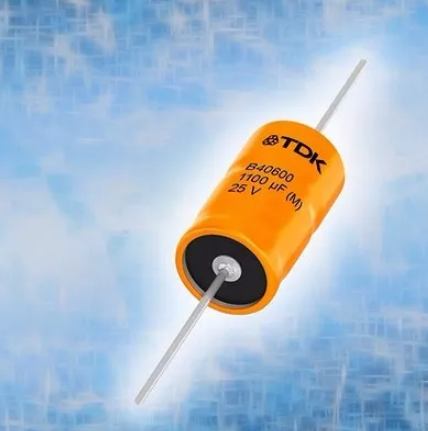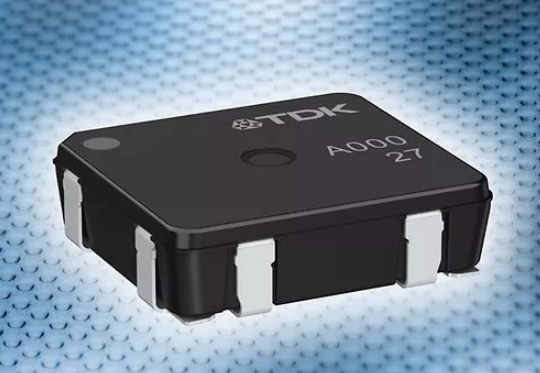The future development of automobiles is inseparable from innovative electronic components. The comprehensive TDK EPCOS new components meet the needs of both traditional automotive technology and the emerging electric vehicle applications. Now Xiaobian introduces the recent innovative components of Tpk in automotive applications.
Whether it's transmission systems, batteries, safety features, comfort and communication, or an increasingly popular auxiliary system, in all areas, including autonomous vehicles, its development is inseparable from innovation in electronic equipment. To run all of these systems safely and simultaneously in a car, the basic requirement is a stable and interference-free automotive power system. TDK offers a wide range of component support for these innovations.

Capacitors and inductors for stable automotive power systems
In automotive power systems and system modules, capacitors are an essential component for stabilizing voltage. We have invented the world's first axial polymer hybrid aluminum electrolytic capacitors, one of our representative innovations, rated at 25 V, 35 V or 63 V and capacitance values from 390 μF to 2100 μF. The great advantage of this series of capacitors is their ultra-low equivalent series resistance (ESR), typically 2mΩ to 3.52mΩ, and can withstand ultra-high ripple currents. This means that users can save a lot of space in the design and greatly reduce the parallel circuit required by traditional aluminum electrolytic capacitors. The new polymer hybrid aluminum electrolytic capacitors are suitable for a wide temperature range of -40 ° C to + 150 ° C.

Figure 1: The world's first axial polymer hybrid aluminum electrolytic capacitor

Figure 2: TDK CA Series MEGACAP Multilayer Chip Ceramic Chip Capacitors (MLCC) with Vertical Multilayer Design and Metal Frame
Multilayer Chip Ceramic Chip Capacitors (MLCC) are ideal for applications such as smoothing voltages and suppressing electromagnetic interference. To meet the stringent requirements of the automotive industry, TDK continues to develop new series of products with higher performance. The new CA Series MEGACAP MLCC features a vertical laminate design and a metal frame for excellent resistance to cracking and thermal shock, up to 150μF and up to 1000V. Typical applications include voltage smoothing and decoupling, as well as resonant circuits for wireless and plug-in charging systems.
The new soft-terminal CN series capacitors feature a rugged design with the lowest equivalent series resistance (ESR) of their class and excellent performance. Capacitors range from 2.2μF to 22μF with a voltage range of 16 V to 100 V. They are widely used for electromagnetic interference suppression (EMI) and voltage stabilization in automotive control equipment, advanced driver assistance systems (ADAS) and autopilot systems. And other applications.
Inductor capable of reliably suppressing noise
TDK's MLD2012 multilayer inductors feature a ferrite core with a compact IEC 2012 (EIA 0805) size, a footprint of 2.0 x 1.25 mm and a mounting height of only 0.5 mm. It provides an inductance of 0.47μH at 1200 mA rated current. MLD2012 inductors offer excellent electrical characteristics and a wide operating temperature range of -40°C to +125°C, making them ideal for advanced driver assistance systems (ADAS) or miniature camera systems. Other potential applications include in-vehicle infotainment systems (IVIs), in-vehicle communication systems, and various control devices.
New transponder coil for keyless entry and start system (PEPS) and tire pressure monitoring
The new 3D transponder coil (B82453C0335A022) has a center frequency of 22 kHz and is suitable for use in automotive keyless entry and start systems (PEPS) and other access control systems. Therefore, this new type of 3D transponder coil is different from the coil previously designed for the center frequency of 125 kHz. It also has high inductance with inductance values of 30 mH, 33 mH and 50 mH for the X, Y and Z axes, respectively, and 25.5 mV/μT (X and Y axes) and 23.3 mV/μT (Z axis). Ultra-high sensitivity, but its dimensions are only 11.5 mm x 12.5 mm x 3.6 mm and thanks to its injection molded package and laser welded joints for superior mechanical stability.
The miniature TPLC553030-592H automotive transponder coil was developed for the tire pressure monitoring system with a center frequency of 125 kHz. Measuring just 5.5 mm x 3.0 mm x 3.0 mm, it is 30% smaller than the previous generation. This transponder coil uses an optimized core geometry and material to provide high sensitivity of approximately 25 mV/μT. It has an inductance of 5.89 mH, a minimum Q of 35, and a resistance of 70Ω.

Figure 3: TDK 3D transponder coil with center frequency of 25kHz achieves ultra-high sensitivity on all axes

Figure 4: Monitoring the internal combustion engine particulate filter with a pressure sensor to prevent clogging
Sensor - Sensory component of automotive electronics
Currently, up to 20 pressure sensors are used in vehicle drive systems and exhaust systems. EPCOS pressure sensors based on piezoresistive principles are commonly used to measure air pressure for specific applications or as a differential pressure sensor. Typical applications include fuel pressure regulation, pump output, and pressure measurement in the intake or exhaust manifold, as well as precise adjustment of the turbocharger pressure. Furthermore, in diesel vehicle exhaust systems, pressure sensors can be used to monitor particulate filters. To prevent complete clogging of the filter, the soot must be cleaned regularly to avoid excessive pressure in the filter.
The powerful EPCOS negative temperature coefficient (NTC) sensor element is designed for temperature measurement applications up to 650 ° C. It uses a high temperature ceramic in glass package and has a wiring pad on the ceramic carrier. This NTC sensor element features high temperature measurement accuracy with a temperature measurement error of only ±1 K at 200 °C. Its terminals are equipped with an alumina carrier and optional lead wires. This high temperature NTC sensor is dedicated to automotive electronic systems such as exhaust gas recirculation systems.





